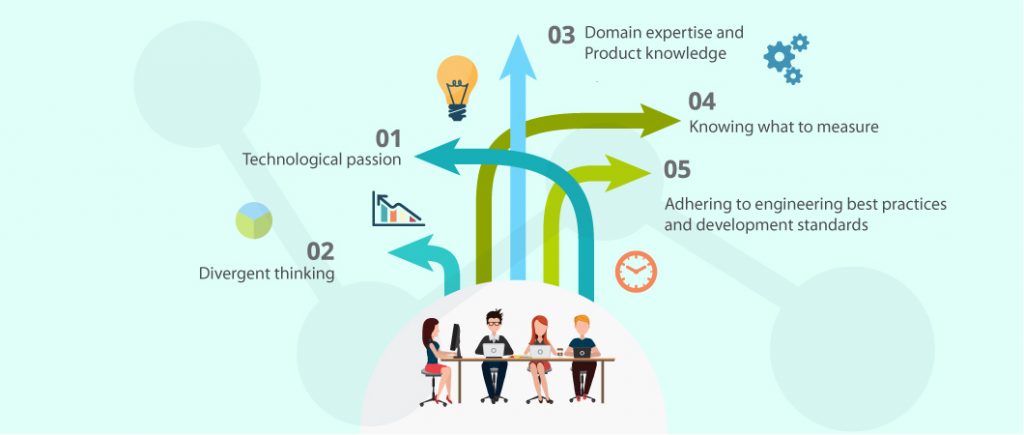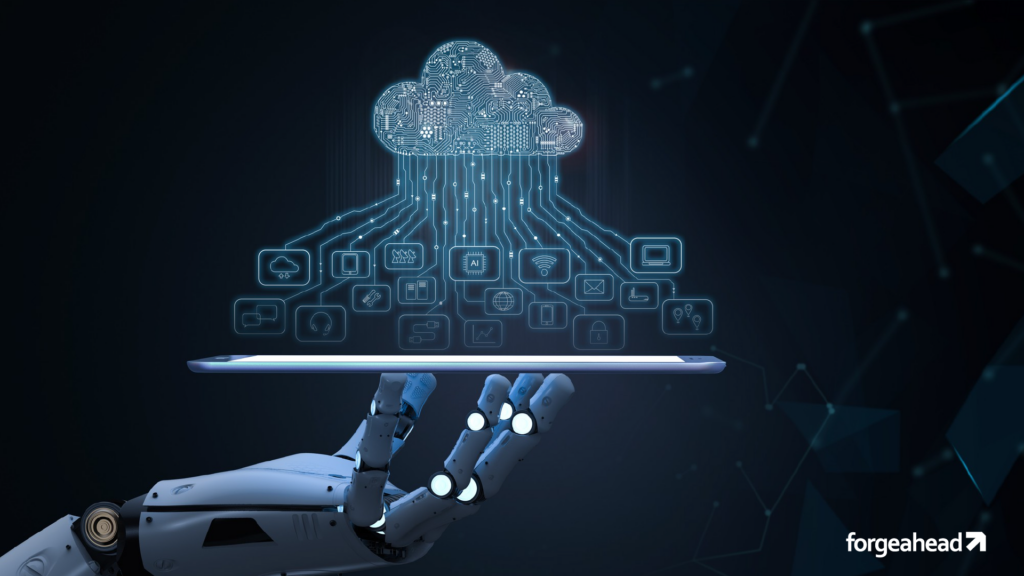Last updated on November 17th, 2022
“Programming today is a race between software engineers striving to build bigger and better idiot-proof programs, and the Universe trying to produce bigger and better idiots. So far the universe is winning” – Unknown The past decade has witnessed a phenomenal evolution in the world of software development. With pre-made solutions, adoption of technologies such as cloud, and globalization, software product engineering teams today are unlike any of the teams of the past. Adoption of new
development methodologies such as DevOps and Agile in this ‘New World’ of software development have further caused development teams to evolve and become more collaborative
in nature. So, in this brave new world of development where monolithic has been replaced by componentization and automation, what qualities should a crack product engineering team have?
Technological passion
High performing product engineering teams are bound by the love of technology. Given that the technological landscape is always in a state of flux and the ‘it’ technology of today is redundant tomorrow, product engineering teams can no longer get rooted in their technological comfort zones. Just like today’s development methodologies, where development, testing, and integrations are continuous, for product engineering teams learning has to be continuous too. Today, it is only those engineering teams that are open to new frameworks and technologies and who are driving change that makes a tangible impact, that will survive and remain relevant for the future.
Divergent thinking
Do you know why ‘hackatons’ are becoming popular? The ‘thinking outside the box’ paradigm has now reached its limit. Today’s product engineering teams not only need to think outside the box but also have to be innovative in their problem-solving approaches. Taking a crack at a problem from the same angle can be limiting in today’s challenging business environment. Divergent thinking, that allows more ideas and more unconventional solutions, broadens the ability to create ideas and solutions and identify areas for potential product improvements. This is becoming the norm for software product engineering teams.
Domain expertise and Product knowledge
You wouldn’t start a food catering business or a restaurant if you or your chefs did not know
how to cook, would you?
Domain expertise and deep product knowledge are essential in order to become a crack product engineering team. Without proper domain and product knowledge is it even reasonable to expect great product creation? At the same time, along with having product knowledge and expertise, software product engineering teams also must have business knowledge. Successful software product engineering teams not only create the product but also immerse themselves in the product prior to the development process. Deep business understanding, familiarity with what the users want and the capability to translate those needs into the design, look and functionalities of the product are the hallmark of crack software product engineering teams.
Knowing what to measure
How many times have we heard “you can only manage what you can measure”? And how many times have we all gone ahead and ignored this? In the defense of software product engineering teams, software-quality metrics only matter when they are linked to business goals and designed to answer key business questions… and those questions are seldom “how many sprints have we run till now?” Since everything in software development is unique, nothing really has any predictive value in isolation. Thus, smart software product engineering teams focus on subjective metrics. These metrics attach certain features to support specific business goals, unlike traditional software-quality metrics which may be oriented around the waterfall development methodology and silos.
Adhering to engineering best practices and development standards
Crack software product engineering teams work on a shared goal and are extremely focused and delivery oriented. However, with increased globalization and team members spread across different geographies and time-zones how can this be ensured? Having an agreement and a common understanding of the development best practices and standards are the first steps in this direction. In order to avoid the ambiguity of any sort, these product engineering teams clearly define the development procedures and code patterns, styles, and standards. They also clearly outline other best practices that they will follow so that they are able to create extensible and superior quality software products. While some of these teams may follow the industry- standards regarding the development of best practices, some teams take a step ahead and define best practices that work for themselves. Having such practices in place ensures that the team is reading from the same playbook. This ensures fewer defects and more successful code mergers and integrations.
Bonus Point!
Along with the stuff mentioned earlier, the hallmark of a crack software product engineering team is its commitment to product and delivery quality. However, IT and product development are seeing so much change almost every day that a ‘one size fits all’ approach can only lead to failure. Hence, being versatile and curious are critical to being relevant, valuable and successful software engineering teams.
Do these qualities apply to your software product engineering team?



